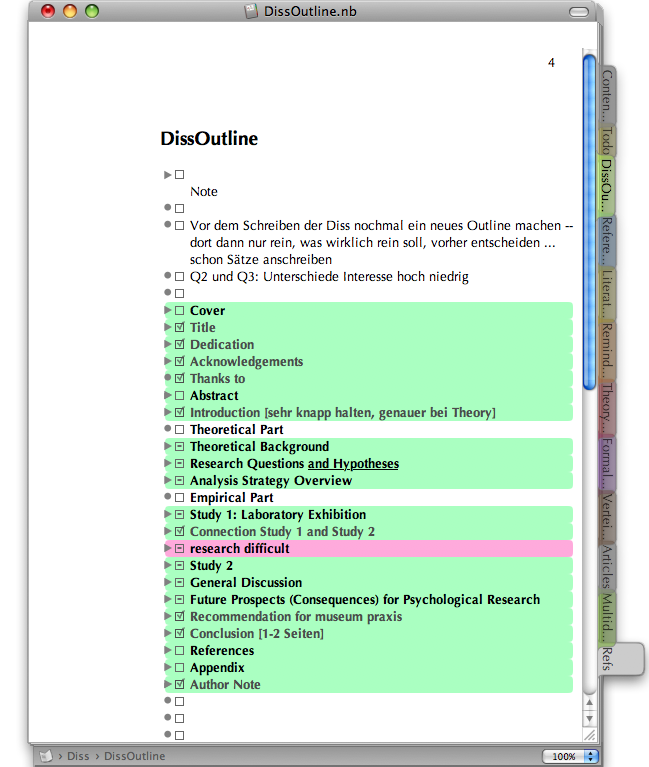Anything you work on that has a solid structure and foundation will minimize your time and effort while maximizing your results. On the other hand, any initiative lacking a sound structure will create many problems down the line.
Therefore, when the time to start on your dissertation is approaching, you can make the entire dissertation process so much easier on yourself if you work carefully on laying a strong foundation for your study. Doing this will bring wonders for you throughout the dissertation process.
In this article, we will show you how to lay that solid foundation and structure for your dissertation. Here is a summary of the process:
- Find the right chair
- Find an alternate contact person
- Decide on your dissertation topic
- Plan a detailed dissertation outline
- Locate & read 3-5 of the most cited works in your field
Step One: Find the Right Supervisor
I know this step sounds a bit obvious but since your supervisor will play such a crucial role in the success (or failure) of your dissertation, finding the right supervisor is absolutely imperative and must be mentioned. For choosing the right supervisor, makes sure that he or she has:
- The necessary academic background in your field of study
- TIME for you
- Not too demanded otherwise there won’t be too much time for you (usually true for ‘popular’ or well-known supervisors)
- Good standing with colleagues
Step Two: Find an Alternate Contact Person
As countless doctoral students complain about all the time, dissertation supervisors may delay help and feedback at many points during the dissertation process (at times, even not giving feedback or help). This is only natural and to be expected. Finding a supervisor with the time to help you will definitely minimize the adverse effects of little guidance but you will still have times where you will have an unavailable supervisor when you really need the help.
Therefore, you should find a SECOND support person who is:
- Qualified in his/her academic area of expertise (doesn’t have to have your same academic background although this will surely help)
- Previously submitted a dissertation thesis
- Willing to help
- Has the time to help
This person can be one of your colleagues, fellow students, family members, or professional dissertation consultants. So be on the lookout.
Regardless of who the person is, you should find your alternate contact person as early in the dissertation process as possible.
Step Three: Decide on Your Dissertation Topic
Now is the time to sit with your supervisor (or alternate contact person) and work on deciding on your topic and proposal.
Although you may have a good idea of your topic, there may be details that you haven’t taken into consideration which may significantly hinder your research on your preferred topic. These complications may include requiring a sample size too large, too much money to complete the study, and other factors.
So use the expertise of your supervisor or alternate contact person (or both) to help you decide on your topic as well as other details like your research method, sample, sample size, research questions, etc.
Here, it is important to make sure that your dissertation topic and methods are fully-aligned with your goal(s). If your goal is to get published, for example, choose a topic that will grab the attention of the academics in your field. If you simply want to get your PhD and move on, choose a somewhat narrow topic with simple research methods to lighten your burden and increase your chances of your success.
Regardless, decide on your dissertation topic and method with your supervisor or alternate contact person and make sure your topic and proposal are aligned with your goals.
Step Four: Plan a Detailed Dissertation Outline
Although I shouldn’t say that this step is the most important, but it is certainly crucial. The other steps may be somewhat difficult to quantify in terms of tangible benefits but correctly implementing this step and creating a detailed outline of your study can save you literally dozens of hours of work.
Of course, just about every dissertation has the same group of chapters (i.e. Introduction, Literature Review, etc.) and even the same sub-sections in the introduction chapter (i.e. research questions, significance of study, problem statement, etc.).
But besides these items, the rest of the structure will be unique to each dissertation. So, here, you must plan ahead in detail to maximize your efficiency & impact later on as well as to give yourself a mental ‘roadmap’ for your dissertation. Here is an example of a detailed outline:

Please refer to a previous blog article titled “Keys to Writing your Dissertation Quickly and Effectively” for more information on forming an outline.
Step Five: Locate & Read 3 – 5 of the Most Cited Studies in your Field
Just about every academic field of study has a core group of major works that you should become well-acquainted with. Find these studies by asking your chair or any other colleague well-versed in the academic topic of your dissertation. You can also do a bit of Internet research to find these studies.
Once you have the studies, read the principal components of each work (i.e. Abstract, Introduction, Discussion/Conclusion). Your goal is to simply gain a general idea of what they did, how they did it, and what they learned as a result.
Summary
Following the steps of this process will give your dissertation a strong foundation and structure that will do some heavy lifting for you in many areas. Keep in mind that while you are involved in these steps, avoid getting ahead and working on the other parts of your dissertation. Even if you spend more time than expected on planning your dissertation, by using the aforementioned steps, the rest of your dissertation will be so much easier to work on since you now have the necessary external academic support, appropriate topic & method, a detailed outline/plan, and the necessary literature background to attack your dissertation with maximum impact.
Contact Dissertation Genius for Any Other Inquiries or Concerns About Your Dissertation. We can Help!
For any inquiries, questions, or concerns about problems you are facing with your dissertation, contact us and tell us your problem. We will give you a free consultation providing you valuable advice and strategies to get you back on track to receiving your PhD!
